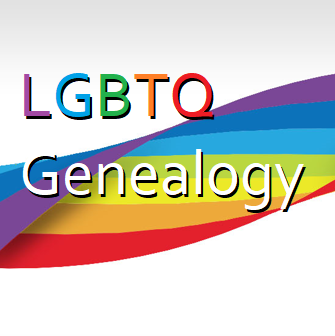Presentism
I first encountered the term “Present-ism” while reading Thomas MacEntee’s blog. Presentism is the awareness of being cautious not to apply today’s cultural norms to past societies. This principle is relevant to all genealogy subjects and particularly crucial when exploring the lives of LGBTQ ancestors.
Our ancestors did not identify as “gay,” “lesbian,” “bisexual,” or “trans” because those terms did not exist with their current meanings, nor were they commonly used until the 1960s. The term “homosexual” was coined in 1869.
Originally, the term “gay” meant happy, joyful, or merry but has since evolved into a substitute word for homosexuality. In the 21st century, the term “trans” is gaining acceptance, along with increased awareness of personal gender pronouns. Terms such as “nonbinary” and “Enbian” were unknown to our ancestors.
Different eras and cultures varied in their acceptance of homosexual acts. Non-hetero couplings were sometimes accepted, while other times they faced punishment, institutionalization, or even death. This is still true in some parts of our modern world. Before the 20th century in Western Europe and North America, individuals engaged in same-sex acts without explicitly defining themselves as gay or homosexual. If they found a long-term relationship, it often needed to be covert, and their sexual acts remained clandestine.
Take, for instance, the intimate relationship between well-known authors Herman Melville, who wrote Moby Dick, and Nathaniel Hawthorne, who wrote The Scarlet Letter. Melville dedicated Moby Dick to Hawthorne. In the 1850 U.S. Census, both authors are enumerated with their wives and children. While the census helps us understand our ancestors’ living arrangements and family connections, it doesn’t serve as proof of sexual orientation. Neither Melville nor Hawthorne identified as gay or bisexual, terms that wouldn’t have applied to their relationship in the 1850s. A more fitting term might be that they enjoyed a “Romantic Friendship.”
Advancements in Queer acceptance are undoubtedly evident in the 21st century. However, our ancestors did not experience the same levels of openness. Genealogists’ awareness of LGBTQ history and how LGBTQ ancestors lived in the past, with varying levels of acceptance, is critical to constructing their stories and avoiding presentism.
The past is a distinct realm, often challenging to interpret accurately through the lens of contemporary perspectives. This acknowledgment underscores the idea that the norms, values, and societal constructs of the past may differ significantly from those of the present. It’s a reminder that understanding historical events and individuals requires a nuanced appreciation for the context and circumstances of the time, preventing the imposition of present-day attitudes onto historical situations.
Laurie Robertson-Lorant, Melville: A Biography (New York: Clarkson Potter, 1996), p 266 – 270.
Andrew Delbanco, Melville: His World and Work (New York: Alfred A Knopf, 2005), p 208 – 212.
John D’Emilio, Sexual Politics, Sexual Communities: The Making of a Homosexual Minority in the United States, 1940-1970 (Chicago, Ill.: The University of Chicago Press, 1983).





